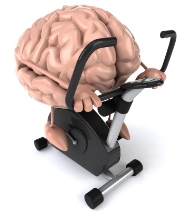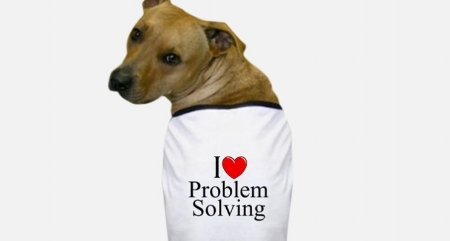The ZALT Bubble….. with Zandy
If I ever give up my day job I want to launch a PR campaign to save the poor reputation of conflict. I want to simply positively reframe conflict resolution as problem-solving. “Look there goes Simon he’s a fabulous problem solver”. I can see the billboards and bumper stickers now. We could lead a rally up the steps of parliament singing “Good problem-solving IS conflict management”, “stop indoctrinating children that conflict is bad”, “What do we want? More conflict friendly organisations. When do we want it? Now!!!”.
Everyone loves problem-solving. So let’s just ride that wave and package it differently, do some marketing bling, and rebrand conflict management to make it more attractive. Look we could even get t-shirts or pet accessories made up.
What is problem-solving?
Cognitive psychologists describe problem-solving as a four-stage process:
1. Identifying the problem
2. generating alternative strategies
3. selecting and implementing a solution
4. evaluating consequences.
To me that sums up conflict resolution.
Look at this picture. Is it a group of colleagues in a structured conflict resolution process like mediation? Or is it a group of colleagues brainstorming and problem-solving together…. Same thing right?

Once I worked with a senior engineer who was the Project Manager for a large development site. He told me he hated conflict resolution, had no skill in it and just wanted someone else to make it go away. When I challenged him and said he was a fantastic conflict resolver because his whole job was problem solving, that is understanding issues, working through potential options, gaining stakeholder buy in, his whole demeanor changed. He said you are right, I am a great problem solver. Once we looked at the conflict he had to manage as a problem he was set!

Heavy lifting for the Brain
Problem solving for the brain is like exercising for muscles. The more problems it resolves the stronger and healthier it becomes. Just like when we start avoiding those circuit classes (boy they are hard!), when we avoid problems, the brain reduces in problem solving fitness and we find it harder.
Amazingly, unlike going to those circuit classes, as humans we are actually hard wired to problem solve. Researchers have concluded that overtime our brains have anatomically evolved and the changes in the lateral frontoparietal network have improved human reasoning skills. That is, modern day humans are even more equipped to problem solve than our ancestors (some would also argue we have given ourselves bigger problems too!).
Don’t be solutions focused
Because people are born problem solvers, the biggest challenge is to overcome the tendency to immediately come up with a solution. Let me say that again. The most common mistake in problem solving is trying to find a solution right away. That’s a mistake because it tries to put the solution at the beginning of the process, this means we have not really scoped the issue and creative responses are less likely to be generated. What we need is a solution at the end of the process.
Conflict resolution is just a fancy way of saying problem solving. So, lets just ride that wave and leverage it to make everyone feel better about conflict solving.
End of pep talk……. If you want to discuss you or your team’s problem solving fitness (AKA conflict management) please be in touch.
The ZALT Group together with Bodycare Workplace Solutions are excited to present a Full Day Course on 25 May 2017
Emotional Intelligence & Conflict Management for Return to Work (RTW) Professionals & Managers
You may also be interested in the following related blogs
The cost of conflict http://thezaltgroup.com.au/blog/2016/4/6/the-cost-of-conflict
Making conflict your friend http://thezaltgroup.com.au/blog/2015/11/4/better-conflict-making-workplace-conflict-your-friened



